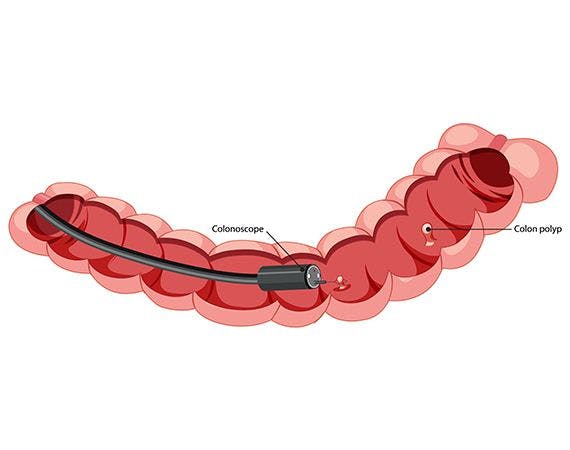
What is a colonoscopy?
A colonoscopy is a medical procedure used to examine the colon and rectum for abnormalities such as polyps, inflammation, or signs of cancer. During a colonoscopy, a flexible colonoscope tube is inserted into the rectum and advanced through the entire colon length. The colonoscope has a camera attached to it, allowing the gastroenterologist or colorectal surgeon performing the procedure to visualize the colon's lining on a monitor in real-time.
Why would I need a colonoscopy?
A colonoscopy enables your healthcare provider to examine your colon for various issues. These can include early indications of cancer, inflamed tissue (which may appear red or swollen), ulcers (characterized by open sores), and signs of bleeding.
Treatment details
How do I prepare for colonoscopy?
Proper preparation for a colonoscopy is essential for its success. Your healthcare provider will provide detailed instructions to follow in the days leading up to your appointment. These preparations ensure your large intestine is thoroughly clean and clear for the procedure. This is crucial because if the colon needs to be adequately prepared, the endoscopist may encounter difficulty visualizing the colon's interior, potentially necessitating rescheduling the colonoscopy and repeating the preparation process.
The preparation typically begins with dietary adjustments several days before the colonoscopy. You'll be advised to follow a low-fibre diet for two or three days, followed by a clear liquid diet on the last day. You'll take a laxative formula the afternoon or evening before the procedure to induce bowel movements and effectively clear the bowels. This process may involve spending several hours in and out of the bathroom. It's essential to make yourself comfortable and ensure you get a good night's sleep before the colonoscopy, which is usually scheduled for the following morning.
During the procedure
A colonoscopy can be performed in an outpatient setting or as part of a hospital stay, depending on your specific condition and your healthcare provider's practices. The procedure follows a standardized process to ensure a thorough examination and patient comfort. Initially, you'll be asked to remove any jewellery or objects that might interfere with the procedure. You may then need to change into a hospital gown. An intravenous (IV) line will be inserted into your arm or hand to administer sedatives or pain medication. Oxygen will also be provided for breathing, while vital signs such as heart rate, blood pressure, respiratory rate, and oxygen level are monitored throughout the procedure. You'll be positioned on your left side with your knees drawn up towards your chest. A lubricated tube will be inserted into your anus and advanced into your rectum and colon. During this process, you may experience mild pain, pressure, or cramping, but sedatives are administered to minimize discomfort. Depending on the type of anaesthesia used, you may be partially or wholly asleep during the procedure or be asked to take slow, deep breaths to help relax your abdominal muscles. Air may be injected into your bowel to improve visibility, and a water jet may be used to clean the colon lining. The healthcare provider will examine your colon and may take photos or remove any polyps detected. Once the procedure is complete, the tube will be removed.
After the process
Following your procedure, you will undergo an hour of recovery in the healthcare facility to allow time for waking up from anaesthesia. During this period, your healthcare team will closely monitor your vital signs and observe for any potential complications. Once fully awake, your gastroenterologist will discuss the examination findings and any procedures conducted. Additionally, you will receive a formal report either by mail or electronically. If tissue samples were obtained for biopsy, the results of these tests will be provided to you later.
Speak to our experts about colonoscopy.
"Speak to our experts about colonoscopy and ensure optimal gastrointestinal health. Our team of experienced gastroenterologists is dedicated to providing comprehensive care and personalized treatment plans tailored to your individual needs. Whether you're due for a routine screening or experiencing symptoms requiring further evaluation, our specialists are here to guide you through every step. Don't hesitate to reach out and schedule a consultation with our knowledgeable team to address any questions or concerns about colonoscopy and its role in maintaining your overall well-being."
FAQS
Health In A Snap, Just One App.
KNOW MORE
